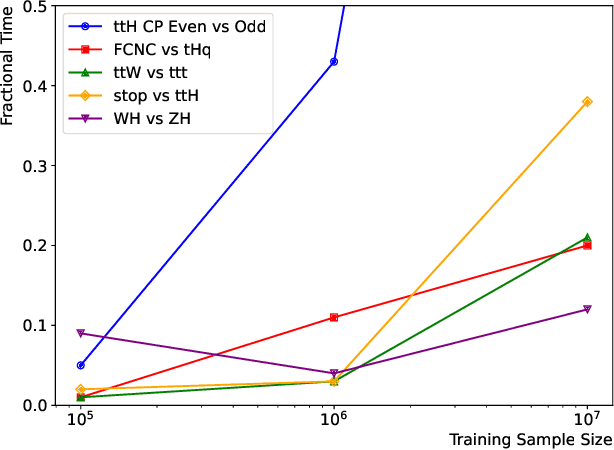Pretrained Event Classification Model for High Energy Physics Analysis
Paper and Code
Dec 14, 2024



We introduce a foundation model for event classification in high-energy physics, built on a Graph Neural Network architecture and trained on 120 million simulated proton-proton collision events spanning 12 distinct physics processes. The model is pretrained to learn a general and robust representation of collision data using challenging multiclass and multilabel classification tasks. Its performance is evaluated across five event classification tasks, which include both physics processes used during pretraining and new processes not encountered during pretraining. Fine-tuning the pretrained model significantly improves classification performance, particularly in scenarios with limited training data, demonstrating gains in both accuracy and computational efficiency. To investigate the underlying mechanisms behind these performance improvements, we employ a representational similarity evaluation framework based on Centered Kernel Alignment. This analysis reveals notable differences in the learned representations of fine-tuned pretrained models compared to baseline models trained from scratch.
 Add to Chrome
Add to Chrome Add to Firefox
Add to Firefox Add to Edge
Add to Edge